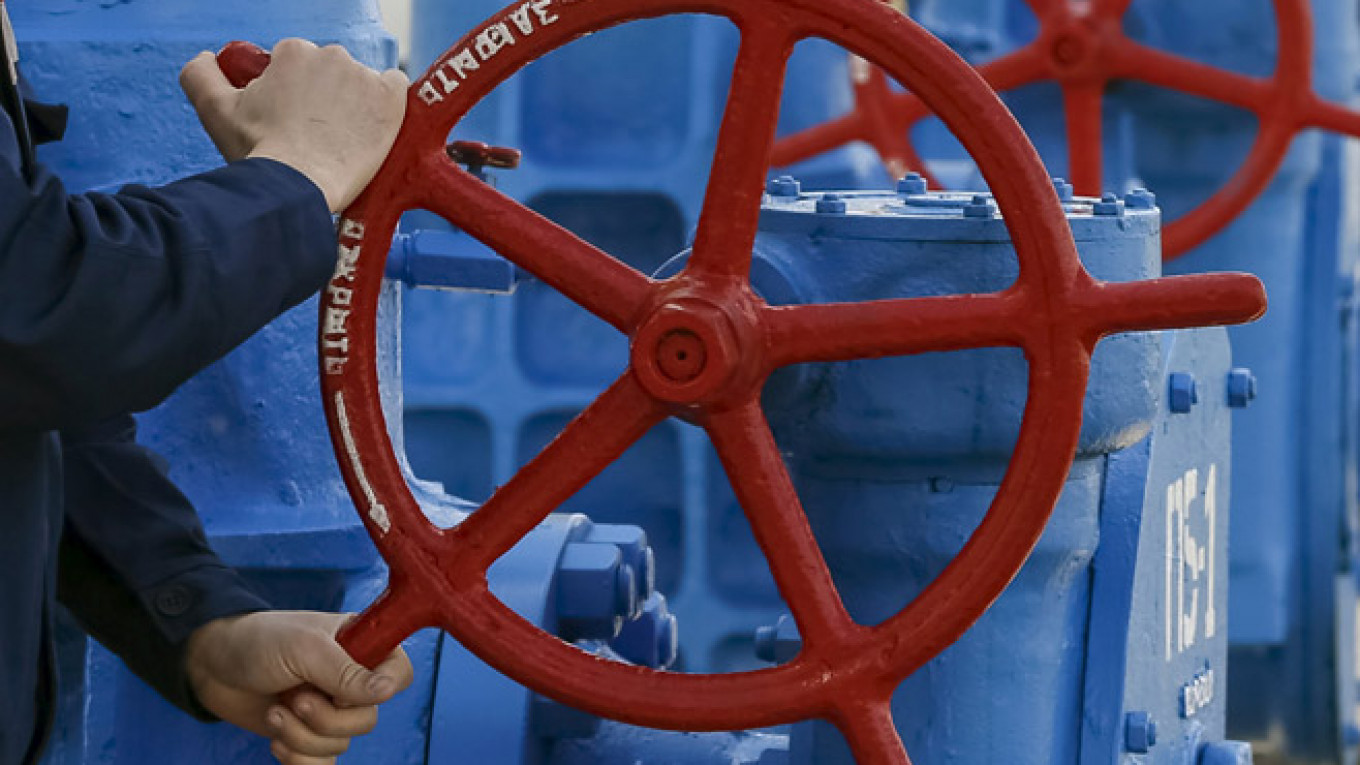BRUSSELS — The biggest obstacle to a gas supply deal between Moscow and Kiev is not the price, but Russia's refusal to sign a legally binding agreement, the head of Ukraine's state gas firm Naftogaz said in an interview on Wednesday.
Naftogaz Chief Executive Andriy Kobolev was speaking in Brussels the day after talks between Ukraine and Russia, brokered by the European Commission, collapsed without agreement, leading Ukraine to halt imports of gas from Russia.
Kobolev said agreement on price and solving an argument over a take or pay clause that forces Kiev to buy energy regardless of its needs would be "good to have," but were not crucial.
"The key issue is not the price because we have access to Europe [for gas] as well," he said.
"The key issue is that Russia does not want to sign. The language Russia was trying to put in was to make it not really binding for them."
What Ukraine and also the European Commission want is a legal protocol to last until at least March next year, ensuring supplies over the peak demand winter months.
The certainty is not just for Kiev, but for the European Union, which depends on Russia for around one third of its gas, around half of which is piped via Ukraine.
Earlier on Wednesday, Commission Vice President Maros Sefcovic said political will from both Ukraine and Russia was needed to move beyond deadlock, but would not say which party lacked the will.
Kobolev pinned the blame on Russia, saying Ukraine arrived at the gas talks held in Vienna on Tuesday with a mandate to sign a deal whereas Russia had not.
In the absence of an extension of an interim accord that expired at midnight, Kobolev said Ukraine had no option but to halt imports of Russian gas.
Reverse flow technology means that gas shipped back to Ukraine from the European Union can theoretically meet 90 percent of Ukraine's needs, Kobolev said.
An issue, however, is cash as banks withhold finance to a nation in talks with international financing institutions over its debts.
One thing that could remove the political difficulties from gas relations with Russia would be solving a row over Slovakian reverse flow, which is restricted because of an agreement between Slovak pipeline operator Eustream and Russia's Gazprom.
Kobolev said resolving that issue could resolve Russia's and Ukraine's gas problem "forever."
With full interconnection, he said, Ukraine could cover peak demand from the European direction, leaving Gazprom in a position to negotiate sales with Ukraine like any other seller.
"They [negotiations] would be held in a purely commercial manner without any requirement to hold political negotiations," he said.
A Message from The Moscow Times:
Dear readers,
We are facing unprecedented challenges. Russia's Prosecutor General's Office has designated The Moscow Times as an "undesirable" organization, criminalizing our work and putting our staff at risk of prosecution. This follows our earlier unjust labeling as a "foreign agent."
These actions are direct attempts to silence independent journalism in Russia. The authorities claim our work "discredits the decisions of the Russian leadership." We see things differently: we strive to provide accurate, unbiased reporting on Russia.
We, the journalists of The Moscow Times, refuse to be silenced. But to continue our work, we need your help.
Your support, no matter how small, makes a world of difference. If you can, please support us monthly starting from just $2. It's quick to set up, and every contribution makes a significant impact.
By supporting The Moscow Times, you're defending open, independent journalism in the face of repression. Thank you for standing with us.
Remind me later.






